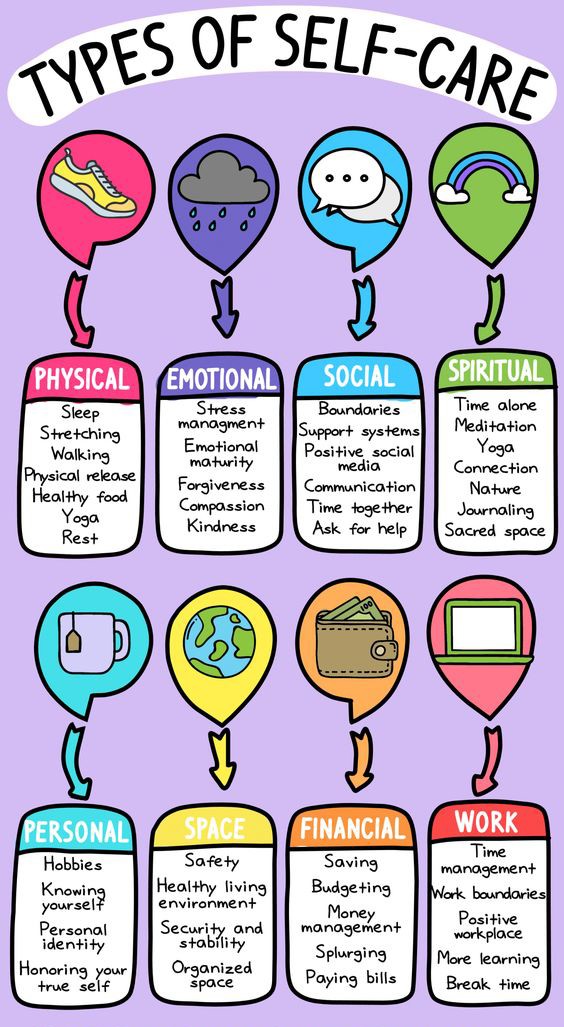Enhancing Adaptability By 25% Through Consistent Self-Care Routines
Did you know that by implementing consistent self-care routines into your daily life, you can enhance your adaptability by as much as 25%? Taking care of yourself not only improves your overall well-being but also equips you with the tools to navigate life’s challenges with ease. In this article, we will explore the benefits of self-care and provide practical tips to help you incorporate it into your everyday routine. So, grab a cup of tea, find a comfy spot, and let’s discover how consistent self-care can enhance your adaptability and bring more balance and joy to your life.

The Importance of Adaptability
Adaptability is a crucial trait that can greatly impact many aspects of your life. It refers to your ability to adjust and respond effectively to changes and new situations. In today’s fast-paced and ever-changing world, being adaptable is more important than ever. It allows you to navigate challenges with ease, embrace new opportunities, and ultimately lead a more fulfilling and successful life.
Understanding the concept of adaptability
Adaptability goes beyond simply being flexible or able to go with the flow. It involves a mindset that embraces change and a willingness to continuously learn and grow. Adaptability involves being open-minded, resilient, and proactive in finding solutions to problems. It is about being able to switch gears when needed, adjusting your plans, and finding new approaches when faced with obstacles.
The benefits of being adaptable
Being adaptable has numerous benefits that can positively impact your personal and professional life. When you are adaptable, you are better able to handle stress and uncertainty, as you are more skilled at problem-solving and finding innovative solutions. Adaptability also enhances your creativity and critical thinking skills, enabling you to think outside the box and seize opportunities that others might miss.
Additionally, adaptability fosters personal growth and development. By embracing change and being open to new experiences, you are constantly learning and expanding your knowledge and skills. This not only enriches your life but also increases your value in the workplace, making you more marketable and promotable.
Self-Care and Adaptability
One often overlooked aspect of adaptability is the strong connection it has with self-care. Self-care refers to the deliberate actions you take to prioritize your physical, mental, and emotional well-being. When you neglect self-care, it becomes much more challenging to adapt to new circumstances and navigate changes effectively.
Exploring the connection between self-care and adaptability
Self-care and adaptability are interconnected because taking care of yourself allows you to be in the best possible state to handle challenges and changes. When you prioritize self-care, you are better equipped to handle stress, make sound decisions, and maintain a positive mindset. It becomes easier to bounce back from setbacks and approach new situations with resilience and confidence.
Self-care encompasses various practices that nurture your physical, mental, and emotional well-being. By incorporating self-care into your daily routine, you can boost your adaptability and enhance your overall quality of life.

Identifying Personal Needs
Recognizing and valuing your personal needs is a crucial step in practicing effective self-care and enhancing your adaptability. Many people tend to put their needs last, focusing on meeting the demands of others or societal expectations. However, neglecting personal needs can have a detrimental impact on your well-being and ability to adapt.
Recognizing and valuing personal needs
Start by taking the time to identify and acknowledge your personal needs. These needs can vary from physical needs like adequate sleep and nutrition to emotional needs like connection and stress management. Taking the time to understand your needs is the first step in making self-care a priority. Remember that your needs are valid and deserving of attention.
The impact of neglecting self-care on adaptability
When you consistently neglect your personal needs, it can lead to burnout, increased stress levels, and decreased resilience. Without proper self-care, your physical and mental health may suffer, making it difficult to adapt to new challenges effectively. Neglecting self-care can also result in decreased motivation, lack of focus, and reduced productivity, further hindering your ability to navigate change.
Creating a Self-Care Routine
Establishing a daily self-care routine is essential for maintaining your well-being and enhancing adaptability. By incorporating self-care activities into your daily life, you can create a solid foundation for resilience and adaptability.
Establishing a daily self-care routine
Start by setting aside dedicated time each day for self-care. This can include activities like exercise, meditation, journaling, or engaging in hobbies that bring you joy. Find a routine that works for you and commit to it. Consistency is key in reaping the benefits of self-care and improving adaptability.
Incorporating self-care activities throughout the day
In addition to a dedicated daily routine, it’s important to infuse self-care into every aspect of your day. This can involve taking short breaks to stretch, practice deep breathing exercises, or engage in mindfulness during work or study sessions. By incorporating small self-care practices throughout the day, you can maintain your well-being and increase your adaptability to change.

Physical Self-Care Practices
Taking care of your physical health plays a significant role in enhancing adaptability. When you prioritize physical self-care, you create a strong foundation for overall well-being and resilience.
Exercise and its effects on adaptability
Regular exercise has been shown to have numerous benefits for both physical and mental health. Engaging in physical activity releases endorphins, reduces stress, improves cognitive function, and boosts energy levels. These positive effects directly contribute to your ability to adapt to new situations and handle challenges effectively.
The role of nutrition in enhancing adaptability
Proper nutrition is vital for maintaining physical health and well-being. A well-balanced diet provides the essential nutrients needed for optimal brain function, energy levels, and overall wellness. When you nourish your body with wholesome foods, you enhance your mental clarity, resilience, and adaptability.
Mental and Emotional Self-Care Practices
Caring for your mental and emotional well-being is just as important as caring for your physical health. Adopting self-care practices that cultivate mindfulness and emotional resilience can significantly enhance your adaptability.
The power of mindfulness and meditation
Practicing mindfulness and meditation allows you to cultivate present-moment awareness and reduce stress. By focusing on the present moment and letting go of negative thoughts and emotions, you can enhance your ability to adapt to new situations. Mindfulness helps you approach changes with clarity and a calm mindset, enabling you to make thoughtful decisions and effectively respond to challenges.
Cultivating emotional resilience through self-care
Emotional resilience refers to your ability to bounce back from setbacks and maintain a positive outlook in the face of adversity. Engaging in self-care activities that nurture your emotional well-being, such as journaling, engaging in hobbies, or seeking support from loved ones, can significantly enhance your emotional resilience. When you prioritize emotional self-care, you are better equipped to navigate change and adapt to new circumstances.

Maintaining Healthy Relationships
The relationships you cultivate in your life have a significant impact on your adaptability. Creating and nurturing healthy relationships can provide support, encouragement, and valuable perspectives that can enhance your ability to adapt to change.
The importance of supportive relationships for adaptability
Surrounding yourself with supportive and understanding individuals can greatly enhance your adaptability. When you have a strong support system in place, you have people to turn to during difficult times and people who can offer guidance and advice. Supportive relationships provide a sense of security and help boost your confidence, making it easier to navigate challenges and embrace change.
Setting boundaries and practicing effective communication
Maintaining healthy relationships also involves setting boundaries and practicing effective communication. By setting clear boundaries, you ensure that your needs and well-being are respected, allowing you to maintain your energy and focus on adapting to change. Effective communication fosters understanding and cooperation, making it easier to navigate conflicts and work together to overcome challenges.
Creating a Supportive Environment
Your physical environment can greatly influence your well-being and adaptability. Designing a nurturing and calming physical space and managing digital distractions are essential aspects of self-care that contribute to increased adaptability.
Designing a nurturing and calming physical space
Creating a physical space that promotes peace and tranquility can greatly enhance your ability to adapt. Consider incorporating elements like natural light, plants, and personal touches that bring you joy into your environment. A calming physical space provides a refuge from stress and helps maintain a positive mindset, contributing to your overall adaptability.
Managing digital distractions for increased adaptability
In today’s digital age, managing digital distractions is crucial for maintaining focus and adaptability. Set boundaries around screen time and establish designated periods for uninterrupted work or self-care. Minimizing distractions from emails, social media, and other digital platforms allows you to maintain mental clarity and better adapt to new challenges.

Building a Growth Mindset
A growth mindset is a belief that challenges and failures are opportunities for learning and growth. Cultivating a growth mindset is an important aspect of enhancing adaptability and embracing change.
Embracing challenges and learning opportunities
Rather than avoiding challenges or fearing failure, approach them with a growth mindset. Embrace challenges as opportunities for growth and view setbacks as valuable learning experiences. By reframing challenges as learning opportunities, you can enhance your adaptability and develop resilience in the face of change.
Overcoming barriers and embracing change
Change can often be intimidating and difficult to embrace. However, by actively overcoming barriers and embracing change, you can enhance your adaptability and open yourself up to new possibilities. Embrace change as an opportunity for personal growth and be willing to step out of your comfort zone. By embracing change, you can adapt more effectively and thrive in an ever-changing world.
Monitoring and Evaluating Progress
As you incorporate self-care practices into your life to enhance adaptability, it’s important to monitor and evaluate your progress. By tracking the impact of consistent self-care routines, you can fine-tune your approach and optimize your results.
Tracking the impact of consistent self-care routines on adaptability
Regularly assess how your self-care practices are impacting your adaptability. Reflect on how well you are adapting to changes and navigating challenges. Keep a journal or use a tracking tool to note any improvements or setbacks. By tracking your progress, you gain valuable insights into which self-care practices are most effective for you and how they enhance your adaptability.
Adjusting and fine-tuning the self-care routine for optimal results
Based on the insights gained from monitoring your progress, adjust and fine-tune your self-care routine to optimize your results. Be flexible and willing to experiment with different self-care activities and approaches. Fine-tuning your routine allows you to continually adapt and improves your ability to respond effectively to changes in your life.
In conclusion, adaptability is a valuable trait that can greatly enhance your overall well-being and lead to success in various areas of your life. By understanding the concept of adaptability and recognizing the importance of self-care, you can actively cultivate adaptability through practices that prioritize your physical, mental, and emotional well-being. By maintaining healthy relationships, creating a supportive environment, building a growth mindset, and consistently monitoring and evaluating your progress, you can enhance your adaptability and thrive in an ever-changing world. Remember, prioritizing self-care is not selfish but rather a vital investment in your overall adaptability and happiness.

















